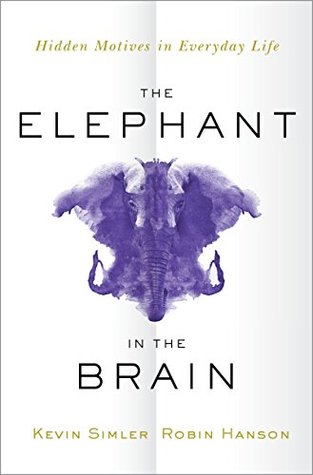More on this book
Community
Kindle Notes & Highlights
by
Kevin Simler
Read between
December 23, 2017 - January 13, 2018
“Every man alone is sincere. At the entrance of a second person, hypocrisy begins.”—Ralph
This is what’s known in the literature as the social brain hypothesis, or sometimes the Machiavellian intelligence hypothesis.3 It’s the idea that our ancestors got smart primarily in order to compete against each other in a variety of social and political scenarios.
From the perspective of evolution, mating, not survival, is the name of the game.
There are good reasons to believe, for example, that our capacities for visual art, music, storytelling, and humor function in large part as elaborate mating displays, not unlike the peacock’s tail.
So it is ultimately the same drive—wanting to win at life’s various competitions—that motivates both the scheming sociopath and the charming courtier.
Meanwhile, close friends want to distinguish themselves from casual friends, and one of the ways they can do it is by being unfriendly, at least on the surface. When a close friend forgets his wallet and can’t pay for lunch, you might call him an idiot. This works only when you’re so confident of your friendship that you can (playfully) insult him, without worrying that it will jeopardize your friendship. This isn’t something a casual friend can get away with as easily, and it may even serve to bring close friends closer together.
Relative to foragers, both chimps and farmers (and to a large extent industrial societies) are much more hierarchical and tolerant of direct authority and high degrees of overt inequality. Hierarchy, however, is alien to the forager way of life.
We think we’re pretty good at introspection, but that’s largely an illusion. In a way we’re almost like outsiders within our own minds.
The advent of photography wreaked similar havoc on the realist aesthetic in painting. Painters could no longer hope to impress viewers by depicting scenes as accurately as possible, as they had strived to do for millennia. “In response,” writes Miller, “painters invented new genres based on new, non-representational aesthetics: impressionism, cubism, expressionism, surrealism, abstraction. Signs of handmade authenticity became more important than representational skill. The brush-stroke became an end in itself.”39
If only we could be moved more by our heads than our hearts, we could do a lot more good.
In other words, educated workers are generally better workers, but not necessarily because school made them better. Instead, a lot of the value of education lies in giving students a chance to advertise the attractive qualities they already have.
In the early decades of the 20th century, IBM used corporate songs to instill a sense of unity among their workers.
our hypothesis is that the political behavior of ordinary, individual citizens is often better explained as an attempt to signal loyalty to “our side” (whatever side that happens to be in a particular situation), rather than as a good-faith attempt to improve outcomes.


